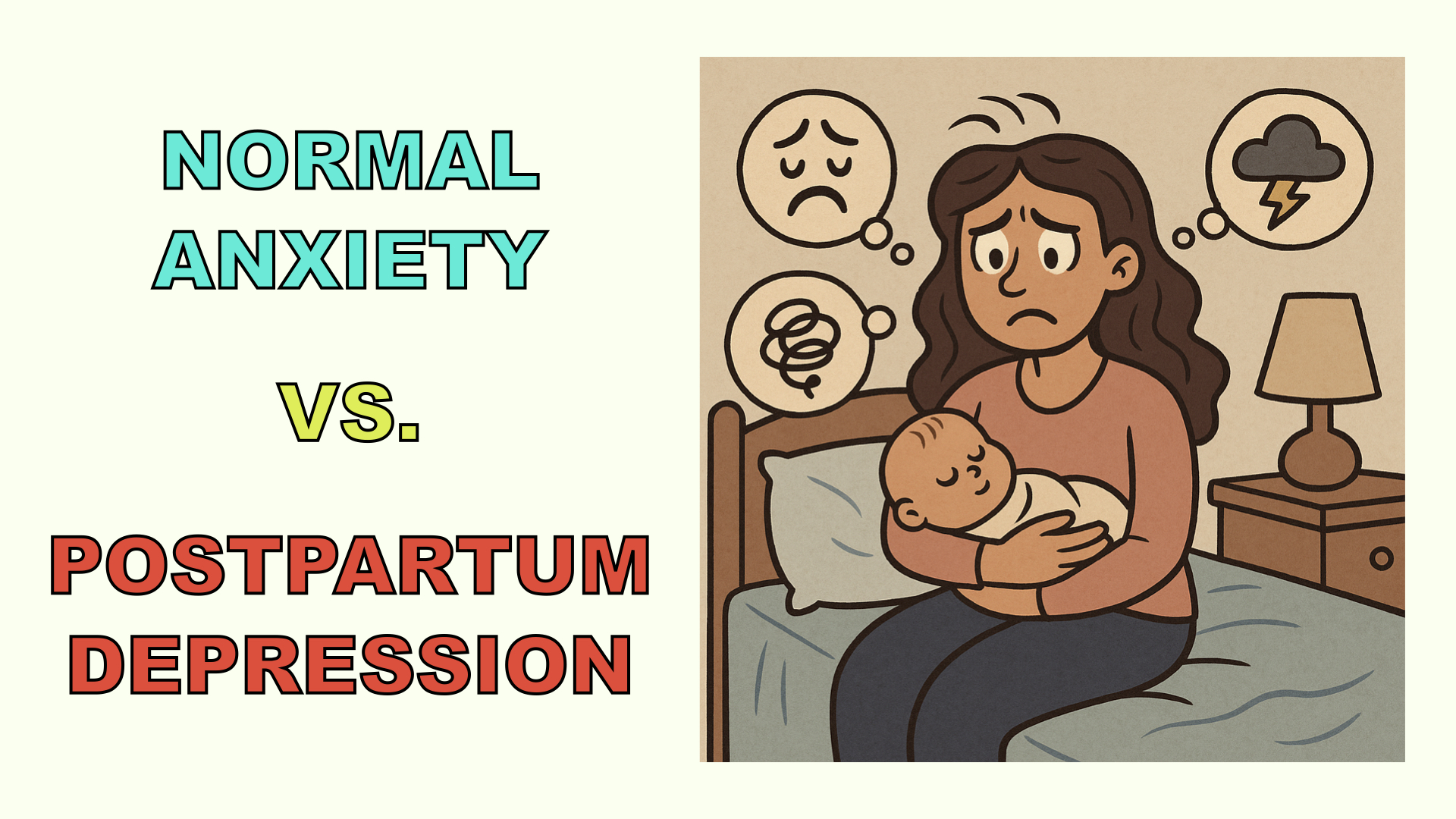As a parent-to-be, I’ve already started feeling the mental load ramping up. I worry about feeding, sleeping, diapering, swaddling—you name it. And that’s all before the baby’s even here.
But in my research, I came across something important that I hadn’t really considered: postpartum anxiety. I’d heard a lot about postpartum depression, but I didn’t realize how common (and how intense) anxiety after birth can be too.
So I’ve been diving in and learning how to recognize the difference between normal, new-parent worry—and the kind of anxiety that might need extra support.
Here’s what I’m learning.
As a quick note: I’m not a medical professional—just a parent-in-training sharing what I’m learning along the way. This blog is based on personal research and preparation. If you’re experiencing intense emotions or mental health concerns, please reach out to a licensed healthcare provider. Getting professional support is one of the best things you can do for yourself and your baby.
1. Some Worry Is Totally Normal
First, let’s be real: worrying is part of being a new parent.
Normal worries might sound like:
- “Is the baby eating enough?”
- “Am I doing this right?”
- “Why is the baby crying like that?”
It’s normal to double-check things, Google a lot, or ask friends and doctors for reassurance. These worries usually come and go. They don’t totally take over your mind or keep you from sleeping when the baby actually is asleep.
2. What Is Postpartum Anxiety?
Postpartum anxiety is more intense, more persistent, and harder to shake.
It can show up in several ways:
- Racing thoughts that feel impossible to turn off
- Constant worry about worst-case scenarios
- Physical symptoms like a racing heart, stomach pain, or tension
- Trouble sleeping even when you’re exhausted
- Feeling irritable, restless, or on edge most of the time
Some parents describe it as a feeling of being “on high alert” all the time, like you can’t relax no matter what.
3. It’s More Common Than You Think
This was eye-opening to me: postpartum anxiety affects around 10% of new parents, though some estimates say it’s even higher.
And it’s not just moms—it can affect dads and non-birthing partners too.
The important thing is: you’re not alone. And it doesn’t mean you’re not a good parent. It means your brain and body are adjusting—and maybe need some support doing it.
(Additional Read: What the heck to even put on your baby registry)
4. The Line Between “Normal” and “Too Much”
Here’s how I’m learning to spot when anxiety might be crossing a line:
| Normal Worry | Possible Postpartum Anxiety |
|---|---|
| Worry that comes and goes | Worry that feels constant or overwhelming |
| Able to calm yourself with reassurance | Unable to stop the anxious thoughts, even when told everything’s okay |
| Sleep when the baby sleeps | Lying awake with racing thoughts even when baby is sleeping |
| Occasional doubt | Daily fear or panic that something bad will happen |
If anxiety is getting in the way of daily life or making it hard to care for yourself or your baby, it’s worth checking in with a doctor or therapist.
5. What to Do If You’re Concerned
I’m not a medical professional, but here’s what I’ve found helpful to know in case anxiety hits hard:
- Talk to your provider. OBs, midwives, and pediatricians all know postpartum anxiety is real.
- Therapy helps. A counselor who specializes in postpartum mental health can be a game-changer.
- Medication may be an option. Some anti-anxiety meds are safe during breastfeeding—talk to your doctor.
- Support groups are out there. Even online ones can help you feel less alone.
The sooner you speak up, the sooner things can get better.
(Additional Read: Fathers prepping to be an amazing parent)
6. What I’m Doing to Prepare Now
Since we’re still expecting, here’s how I’m trying to prepare in case postpartum anxiety shows up:
- Making a list of people I trust to talk to
- Bookmarking online resources like Postpartum Support International
- Letting my partner know what signs to watch for in me
- Reminding myself it’s okay to ask for help
Just having a plan gives me a little peace of mind.
Final Thoughts (From One Thoughtful Parent-to-Be to Another)
Feeling worried doesn’t make you weak—it means you care. But if those feelings spiral or won’t go away, you deserve support.
I’m not waiting until things get hard to learn how to handle them. And if you’re reading this, maybe you aren’t either.
Whether it’s normal worry or something deeper, help is out there—and so are other parents who get it.
We’re not alone in this.
